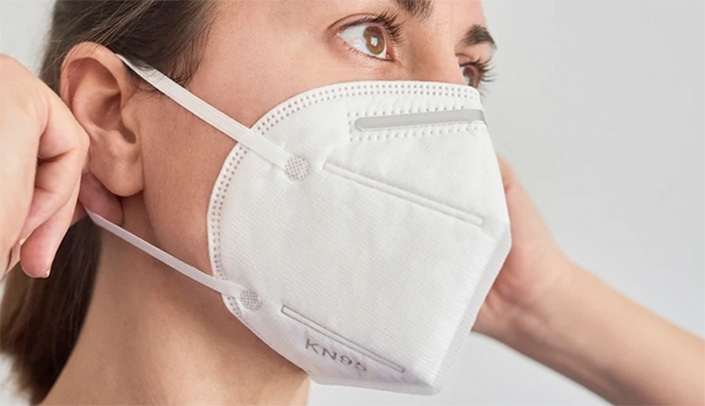Here are some guidelines on how long a KN95 mask can be worn. The effective duration varies depending on the employee’s role, as well as the care and use of the mask.
The following guidance may be helpful:
- Patient care setting: Facemasks worn during patient encounters may be reused during a single shift but should be discarded at the end of the shift. Nebraska Medicine will supply masks at the entrances to their patient care areas.
- Non-patient care setting: A disposable facemask can be worn for several hours or up to a few days when stored safely and when not wet or distorted. Masks should no longer be used if soiled, wet, the straps begin to stretch, threads become separated, or the mask begins to lose shape.
- One study published in the journal Medicine had volunteers wear N95s for eight hours a day and found that the average filtration efficiency of the masks was still 97% after three days of use.
- Refer to these extended use guidelines for details.
- If possible, rotate through different masks and keep them in a dry place between uses (ie: a breathable paper bag or an open sandwich baggie)
- Consult your department for specific guidance as roles, uses and infection control measures vary.
Ordering KN95 masks
At this time, UNMC supervisors, managers or administrators may order federally-funded KN95 masks via the UNMC Mask Request Form. UNMC has a limited supply of KN95s and once that inventory runs out, departments will need to place orders through eSHOP using their own cost center.
On Jan. 17, UNMC began requiring faculty, staff and students on campus to wear a KN95, if not already in a fitted N95. The decision followed a directive from Nebraska Medicine that colleagues in clinical areas, including students on rotation, wear a KN95 or N95 mask.
UNMC will continue its current masking guidance until data for the highly transmissible omicron variant indicate that surgical masks provide sufficient protection.
Throughout the COVID-19 pandemic, the med center has assessed its campus safety guidelines to best protect faculty, staff, residents, students and patients. Guidelines will continue to follow the science and be adjusted as community transmission rates change. See the UNMC COVID-19 Resources page for updates information.
